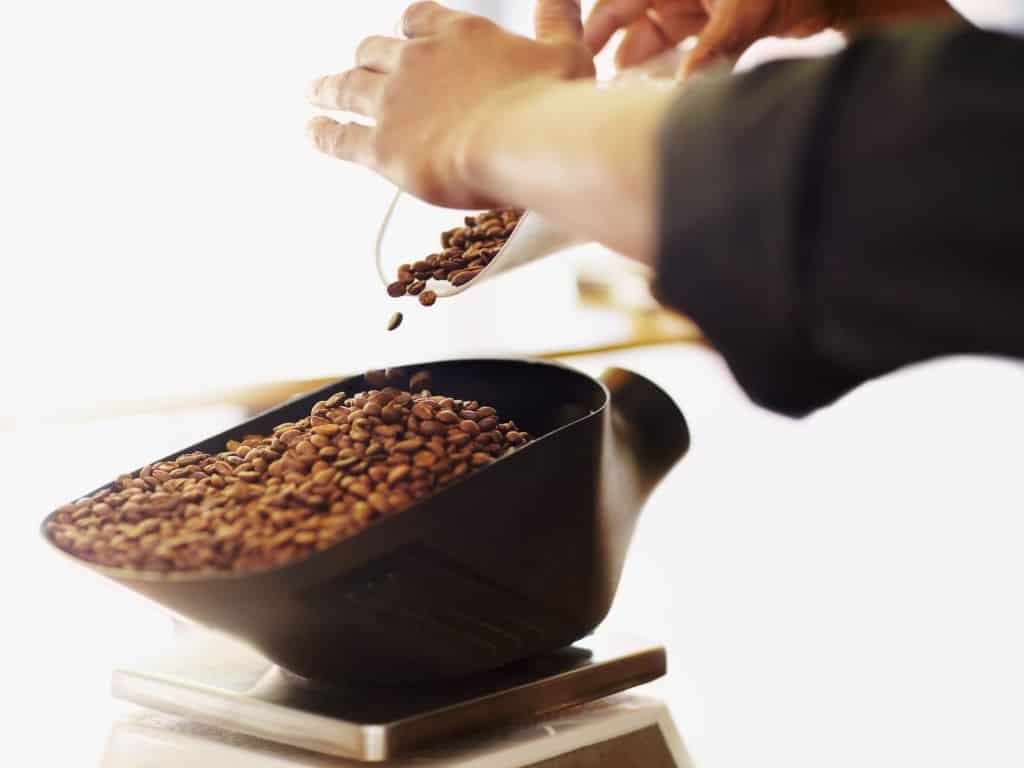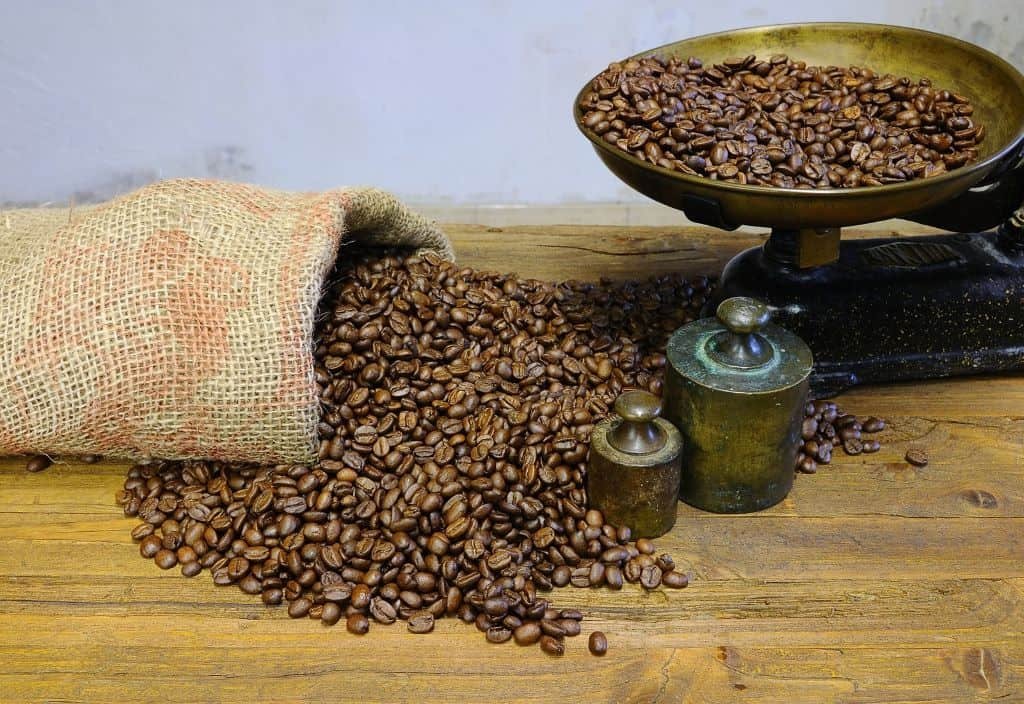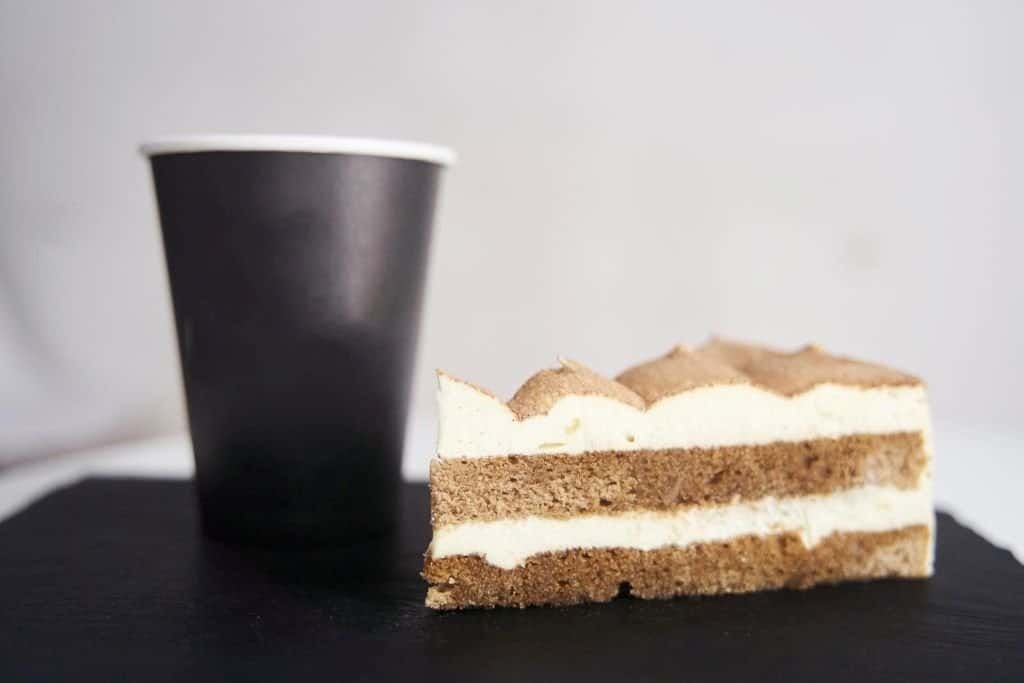If you’re a coffee enthusiast, you may have wondered how much a coffee bean weighs. The weight of a coffee bean is an important factor in determining the flavor and strength of your brew. Knowing the weight of your coffee beans can help you achieve a consistent taste, as well as understand the impact of different roasts and origins.
The average weight of a coffee bean ranges from 0.12 grams for a dark roast to 0.17 grams for an unroasted bean. However, individual varieties can weigh less or more. The weight of a coffee bean is influenced by several factors, including the origin, climate, and roasting process. Understanding these variables can help you choose the right beans for your preferred brewing method.
By knowing the weight of your coffee beans, you can also experiment with different brewing techniques. For example, lighter beans may require more grounds to achieve the same strength as darker beans. Additionally, measuring your beans by weight instead of volume can lead to a more accurate and consistent brew. Overall, understanding the weight of a coffee bean can enhance your coffee experience and help you achieve the perfect cup.
Why Is Coffee Bean Weight Important?

If you are a coffee lover, you might have come across the term “coffee bean weight” before. Coffee bean weight is essential to understand if you want to make a perfect cup of coffee. In this section, we will discuss why coffee bean weight is important.
Benefits of Knowing a Coffee Bean’s Weight
Knowing the weight of the coffee beans you are using has several benefits. Firstly, it helps you to measure the right amount of coffee for a perfect cup. Secondly, it helps you to achieve consistency in your coffee brewing. Consistency is vital when it comes to making great coffee. Thirdly, it helps you to save money by not wasting coffee beans.
Why Should You Care About the Weight of a Coffee Bean?
The weight of a coffee bean determines the amount of coffee that you will use to brew a cup. If you use too little coffee, your coffee will be weak, and if you use too much coffee, your coffee will be too strong. Therefore, it is crucial to know the weight of the coffee beans you are using to achieve the perfect balance.
Why the Amount of Coffee Matters
The amount of coffee you use in your brewing process affects the taste, aroma, and strength of your coffee. The standard measurement for coffee is 1:16, which means one part coffee to sixteen parts water. If you use more coffee, your coffee will be stronger, and if you use less coffee, your coffee will be weaker. Therefore, it is essential to measure the right amount of coffee to achieve the perfect taste.
In conclusion, understanding the weight of coffee beans is crucial if you want to make a perfect cup of coffee. It helps you to measure the right amount of coffee, achieve consistency, and save money. Knowing the weight of your coffee beans ensures that you get the perfect balance of taste, aroma, and strength.
How Much Does a Coffee Bean Weigh?
If you’re a coffee lover, you might be curious about how much a coffee bean weighs. Knowing the weight of a coffee bean can help you in measuring the right amount of coffee for your brew. In this section, we’ll take a closer look at the weight of coffee beans.

What is the Typical Size of a Coffee Bean?
Coffee beans come in different sizes, shapes, and colors. On average, a coffee bean is about 0.25 inches long and 0.15 inches wide. However, the size of a coffee bean can vary depending on the species, growing conditions, and processing method.
What is the Weight of a Single Coffee Bean in Grams?
On average, a single coffee bean weighs between 0.12 and 0.17 grams or 120 to 170 milligrams. This means that approximately 6 to 10 coffee beans make up 1 gram. However, the weight of a coffee bean can vary depending on several factors, such as the species, growing conditions, and processing method.
Does Roasting Impact the Mass of Coffee Beans?
Yes, roasting affects the weight of coffee beans. The weight of coffee beans decreases during the roasting process due to the loss of moisture. The darker the roast, the lighter the coffee beans become. However, the weight loss during roasting is minimal and doesn’t affect the flavor of the coffee significantly.
Does Freshness Affect Coffee Bean Weight?
No, freshness doesn’t affect the weight of coffee beans. However, fresh coffee beans tend to have a higher moisture content than stale beans. This means that fresh coffee beans may weigh slightly more than stale beans. However, the difference in weight is negligible and doesn’t affect the brewing process.
Different Roast = Different Mass
Different roasts can have different masses. Lighter roasts tend to be denser and weigh more than darker roasts. This is because darker roasts lose more moisture during the roasting process. Therefore, if you’re measuring coffee by weight, you should adjust the amount based on the roast level.
In conclusion, the weight of a coffee bean can vary depending on several factors, such as the species, growing conditions, and processing method. Knowing the weight of coffee beans can help you in measuring the right amount of coffee for your brew.
Measuring Coffee Bean Weight

When it comes to making a perfect cup of coffee, measuring the right amount of coffee beans is crucial. The weight of coffee beans can vary depending on factors like the roast level, origin, and processing method. In this section, we will discuss how to measure coffee bean weight accurately.
How to Determine the Weight of a Coffee Bean?
The weight of a coffee bean can be calculated by using a scale. On average, a coffee bean weighs between 0.12 and 0.17 grams. This means that approximately 6 to 10 coffee beans make up one gram. However, the weight of a coffee bean can vary depending on the factors mentioned earlier.
Measuring Coffee: Weight or Volume?
Measuring coffee by weight is the most accurate method. Using a scale to measure coffee beans ensures that you get the right amount of coffee every time. Measuring coffee by volume can be less accurate as the volume of coffee beans can vary depending on factors like the roast level and grind size.
When to Measure Coffee: Before or After Grinding?
It is best to measure coffee beans before grinding them. This is because the weight of ground coffee can vary depending on the grind size. If you measure coffee after grinding, you may end up with too much or too little coffee.
How Much Ground Coffee Does 1 Lb of Beans Make?
One pound of coffee beans makes approximately 25 cups of coffee. This means that one cup of coffee requires approximately 0.64 ounces or 18 grams of coffee beans. However, the amount of ground coffee produced from one pound of beans can vary depending on the grind size and roast level.
What is the Ideal Weight for Coffee?
The ideal weight of coffee depends on personal preference. However, a general rule of thumb is to use 1 to 2 tablespoons of coffee per 6 ounces of water. This means that for every cup of coffee, you should use approximately 0.38 to 0.75 ounces or 11 to 21 grams of coffee beans.
Ground Coffee Weight to Volume
The weight of ground coffee can vary depending on the grind size and roast level. Here are some general guidelines for measuring ground coffee by volume:
- 1 tablespoon of whole-bean coffee weighs about 5.29 grams
- 1 tablespoon of ground coffee weighs about 4.07 grams
In conclusion, measuring coffee bean weight accurately is essential for making a perfect cup of coffee. By using a scale to measure coffee beans and following the guidelines mentioned above, you can ensure that you get the right amount of coffee every time.
Measuring Coffee for Brewing
Brewing a perfect cup of coffee requires the right amount of coffee beans. Measuring coffee is not only about getting the right taste but also ensuring that you don’t waste coffee beans. Here are some tips on measuring coffee for brewing.
What Are the Proportions for Brewing a Cup of Coffee?
The standard ratio for brewing coffee is two tablespoons of coffee beans for every six ounces of water. This ratio can be adjusted based on your taste preferences. If you like your coffee strong, you can use more coffee beans, and if you prefer a milder taste, you can use less.
How Much Coffee Should Be Used for a French Press?
For a French press, the recommended ratio is one tablespoon of coffee beans for every four ounces of water. However, this ratio can be adjusted based on your taste preferences. If you prefer a stronger taste, you can use more coffee beans, and if you prefer a milder taste, you can use less.
How Much Coffee for Different Cup Sizes?
The following table shows the recommended amount of coffee beans for different cup sizes:
| Cup Size | Coffee Beans (grams) | Water Amount (milliliters/fluid ounces) |
|---|---|---|
| 1 cup | 10 grams | 180 ml / 6 fl oz |
| 2 cups | 20 grams | 360 ml / 12 fl oz |
| 4 cups | 40 grams | 720 ml / 24 fl oz |
| 6 cups | 60 grams | 1080 ml / 36 fl oz |
| 8 cups | 80 grams | 1440 ml / 48 fl oz |
| 10 cups | 100 grams | 1800 ml / 60 fl oz |
| 12 cups | 120 grams | 2160 ml / 72 fl oz |
Please note that the water amount provided is an estimate and can be adjusted based on personal preference. The coffee bean amounts listed are general recommendations and can be adjusted according to your desired strength and taste.
How Much Is a Coffee Scoop of Beans?
A coffee scoop is equivalent to two tablespoons or 10 grams of coffee beans.
How Many Grams of Coffee Beans Are in a Scoop?
A coffee scoop contains 10 grams of coffee beans.
What is the Weight of a Single Scoop of Coffee?
A coffee scoop weighs 10 grams.
How Much Does 2 Tablespoons of Coffee Beans Weigh?
Two tablespoons of coffee beans weigh 10 grams.
How Much Coffee Is in a Cup?
A cup of coffee contains six ounces of water and two tablespoons or 10 grams of coffee beans.
How Many Beans are Required for a Cup of Coffee?
The number of coffee beans in a cup of coffee can vary based on a number of factors, including the size of the cup, the brewing method, and the strength of the coffee.
Additionally, there is no set number of coffee beans that are required to make a cup of coffee. Some sources suggest that it takes around 10 grams of coffee grounds to make a standard 6-ounce cup of coffee, but this can vary depending on personal preference.
Measuring Coffee Using Scales
If you’re a coffee lover, you know that the perfect cup of coffee requires precise measurements. Measuring coffee using a scale is one of the most accurate ways to ensure that you’re getting the right amount of coffee. Here’s why you should consider using a coffee scale to prepare your coffee.
- High precision: The coffee scale with high precision sensor can provide you with accurate measurement from 0.1g to 2kg (the initial minimum weight is 0.5G).
- High-quality materials: made of high-quality acrylic, compact, thin and durable. The fine matte surface prevents fingerprints and accidental scratches. Equipped with silicone insulation waterproof pad…
- High-end function: TIMEMORE coffee scale integrates two advanced buttons for easy operation. A large backlit LCD screen displays weight in grams. The coffee scale has an automatic timing function,…
Why Use a Coffee Scale to Prepare My Coffee?
Using a coffee scale ensures that you’re getting the exact amount of coffee you need for your brew. This is especially important if you’re using a manual brewing method like pour-over or French press. Measuring your coffee using a scale will give you consistent results every time you brew.
How to Measure Coffee for Different Types of Coffee Makers?
Different types of coffee makers require different amounts of coffee. Here’s a quick guide to help you measure your coffee for different types of coffee makers:
- Drip Coffee Maker: Use 1 to 2 tablespoons of coffee grounds per 6 ounces of water.
- French Press: Use 1 to 2 tablespoons of coffee grounds per 4 ounces of water.
- Pour-Over: Use 1 to 2 tablespoons of coffee grounds per 6 ounces of water.
- Espresso: Use 7 to 8 grams of coffee grounds per shot.
How to Measure Caffeine in Coffee?
Measuring caffeine in coffee can be tricky since it varies depending on the type of coffee bean and the brewing method used. However, you can estimate the caffeine content of your coffee by measuring the amount of coffee grounds you use. On average, a cup of coffee contains around 95 milligrams of caffeine.
How to Weigh Pour Over Coffee Without a Scale?
If you don’t have a scale, you can still measure your pour-over coffee using a tablespoon. Use 1 to 2 tablespoons of coffee grounds per 6 ounces of water. Keep in mind that this method may not be as accurate as using a scale.
The Best Ways to Measure Coffee Beans Accurately
There are several ways to measure coffee beans accurately. Here are some of the best ways:
- Use a coffee scale: This is the most accurate way to measure coffee beans.
- Use a tablespoon: Use 1 tablespoon of coffee beans per 6 ounces of water.
- Use a coffee scoop: Use a coffee scoop that measures the right amount of coffee beans for your brew.
Measuring your coffee using a scale is one of the best ways to ensure that you’re getting the perfect cup of coffee every time. Whether you’re using a drip coffee maker or a French press, measuring your coffee using a scale will give you consistent results and help you perfect your brew.
Coffee Bag Weight

When it comes to coffee, there are many factors that can affect the weight of a bag of coffee. In this section, we will explore the weight of coffee bags, including how many cups of coffee are in a bag, what a coffee bag is used for, and how much a green coffee bag weighs.
How Many Cups of Coffee Can You Make from One Bag of Coffee?
The number of cups of coffee in a bag of coffee can vary depending on the size of the bag and the type of coffee. A 1-pound bag of coffee typically contains around 30 cups of coffee, while a 2-pound bag contains around 60 cups. However, this can vary depending on how strong you like your coffee and how much coffee you use per cup.
What is the Purpose of a Coffee Bag for Shipping and Storing Coffee?
A coffee bag is a type of bag that is used for shipping and storing coffee. These bags are typically made from jute and can hold up to 60 kilograms (130 pounds) of coffee beans. They are designed to protect the coffee beans from moisture and other environmental factors that can affect the quality of the coffee.
What is the Weight of a Standard Green Coffee Bag?
A green coffee bag is a type of bag that is used to transport unroasted coffee beans. These bags typically weigh between 60 and 70 kilograms (130 and 150 pounds) and are made from jute. The weight of a green coffee bag can vary depending on the size of the bag and the type of coffee beans that are being transported.
How Many Grams are Contained in a Jute Bag of Coffee?
A coffee jute bag typically weighs around 60 kilograms (130 pounds). This is equivalent to approximately 60,000 grams.
How Many Oz Is a Normal Coffee Bag?
A normal coffee bag typically weighs around 12 ounces (340 grams). However, the weight of a coffee bag can vary depending on the size of the bag and the type of coffee.
What is the Average Weight of a Coffee Bag?
The weight of a bag of coffee can vary depending on the size of the bag and the type of coffee. A 1-pound bag of coffee typically weighs around 16 ounces (454 grams), while a 2-pound bag weighs around 32 ounces (907 grams).
What is the Weight of a Standard Coffee Sack?
A coffee sack typically weighs around 132 pounds (60 kilograms). This is equivalent to approximately 132 cups of coffee.
In conclusion, the weight of a coffee bag can vary depending on many factors, including the size of the bag and the type of coffee. However, understanding the weight of a coffee bag can help you determine how much coffee you need to buy to make the perfect cup.
Wrapping Things Up
Now that you know how much a coffee bean weighs, you can use this information to make better coffee at home. Here are a few key takeaways to keep in mind:
- The average weight of a coffee bean is between 0.12 and 0.17 grams.
- The weight of a coffee bean can be influenced by factors such as variety, size, age, and roast intensity.
- Brazilian beans are typically smaller and lighter than other beans due to their growing location.
- Measuring your coffee beans by weight rather than volume can help ensure consistent results.
When brewing coffee, it’s important to use the right amount of coffee beans for the amount of water you’re using. A general rule of thumb is to use 1 to 2 tablespoons of coffee grounds per 6 ounces of water, but this can vary depending on your personal preferences and the type of coffee you’re brewing.
By measuring your coffee beans by weight instead of volume, you can ensure that you’re using the right amount of coffee for optimal flavor and strength. So next time you’re brewing a cup of coffee, consider weighing your beans for the best results.





